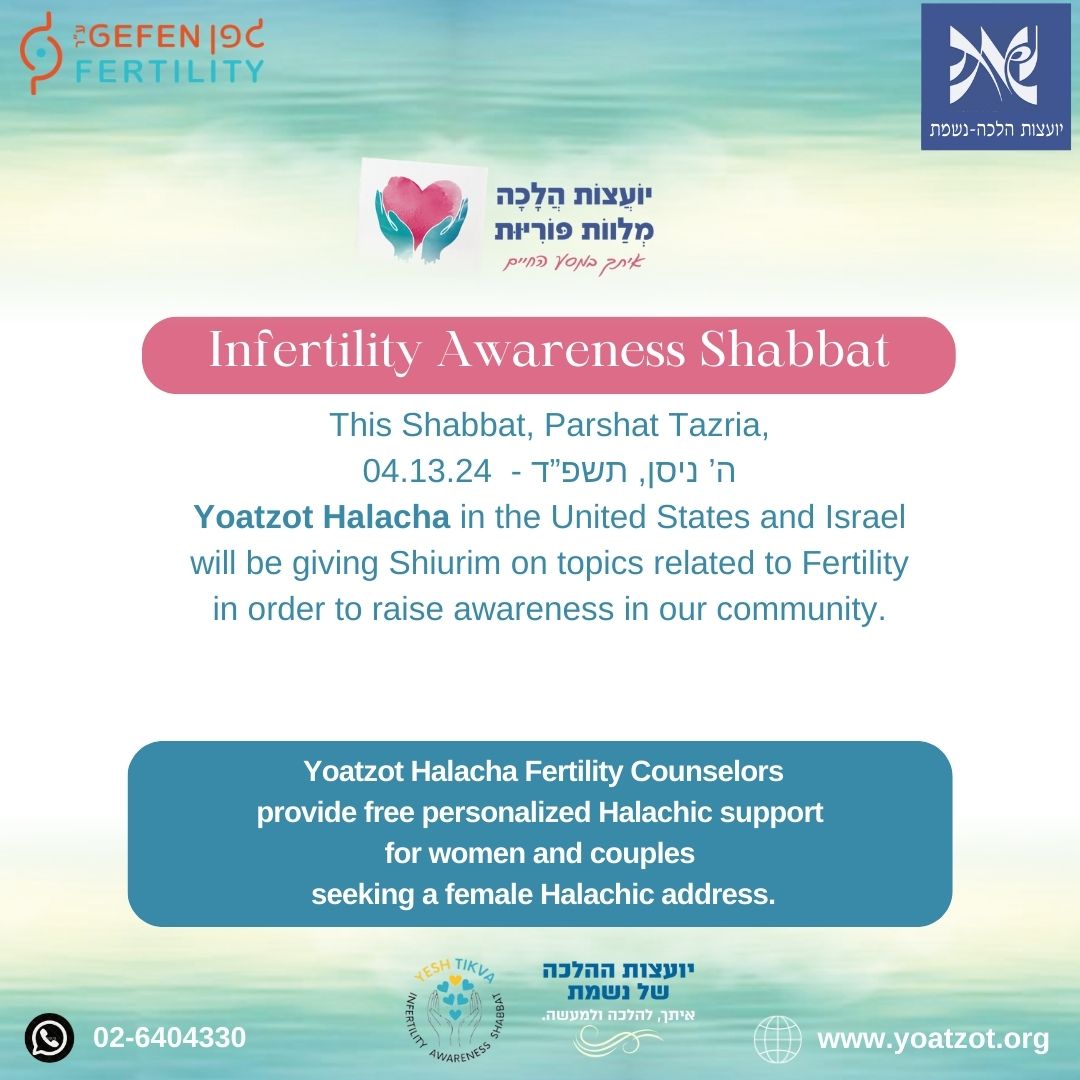Mikveh after D & C
23 April, 2004
 Question:
Question:Shalom,
I started spotting on April 7th and started bleeding heavily on the 14th. Today is the 22nd and since my bleeding did not stop I went for a D & C.
How long more should I expect to bleed?
When is it safe physically for me to go to the Mikvah?
Are there any accommodations as far as the bedikah cloth since I am really sore?
Thanks.
Answer:Bleeding after a D & C typically continues for a few hours to a few days. If it goes beyond a week, you should consult your physician.
Unless your physician objects, it is safe to go to the mikveh as soon as you are eligible. A mikveh is usually kept to more stringent hygienic standards than a home bath. If you are concerned, you can try to arrange with the mikveh in advance to be the first one to immerse.
Regarding your bedikot: This cycle, after your hefsek taharah, you should omit your moch dachuk. You may also perform one bedikah daily during the seven clean days, instead of the usual two daily bedikot. If this is still difficult, you may skip some of the bedikot on days two through six, making sure not to forget the bedikah on days one and seven. It is preferable to make sure to perform at least one additional bedikah on one of the middle days.
We recommend trying to find especially soft bedikah cloths. You can also wet your bedikah cloths slightly, so that they are less abrasive. If the bedikot still cause you discomfort, you can try applying some water-based vaginal lubricant to the area about 15 minutes before the bedikah.
Feel free to write back to us or call our telephone hotline if we can be of further assistance.
Updated 13 September, 2023
This internet service does not preclude, override or replace the psak of any rabbinical authority. It is the responsibility of the questioner to inform us of any previous consultation or ruling. As even slight variation in circumstances may have Halachic consequences, views expressed concerning one case may not be applied to other, seemingly similar cases. All health and health-related information contained within Nishmat's Women's Health & Halacha Web site is intended to be general in nature and should not be used as a substitute for consulting with your health care professional. The advice is intended to offer a basis for individuals to discuss their medical condition with their health care provider but not individual advice. Although every effort is made to ensure that the material within Nishmat's Women's Health & Halacha Web site is accurate and timely, it is provided for the convenience of the Web site user but should not be considered official. Advice for actual medical practice should be obtained from a licensed health care professional.
For further questions or comments: 
The Nishmat Women's Health and Halacha Site is a public service of Nishmat, The Jeanie Schottenstein Center for Advanced Torah Study for Women. This project and others like it are made possible by contributions from people like you. If you have benefited from the service, and wish to enable us to help others, click here to donate.
Users of Internet filtering services: This site discusses sensitive subjects that some services filter without visual indication. A page that appears 100% complete might actually be missing critical Jewish-law or medical information. To ensure that you view the pages accurately, ask the filtering service to whitelist all pages under yoatzot.org.






 Question:
Question:







